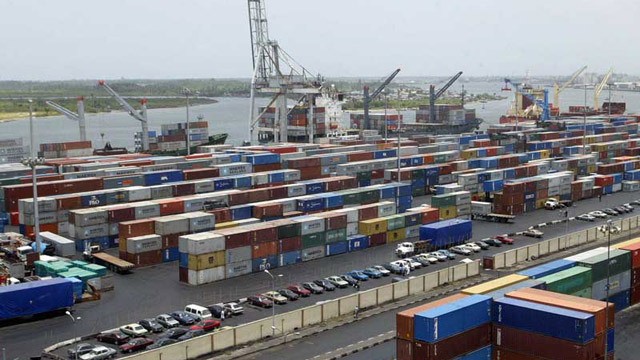
Six years following the introduction of the President Executive Order 001 aimed at enhancing the ease of doing business at Nigeria’s seaports, progress appears to have remained slow.
The initiative, intended to streamline operations and reduce bureaucratic hurdles, has not materialised into tangible improvements.
Consequently, the inefficiencies at the seaports have led to a significant diversion of Nigerian-bound cargoes to neighboring countries, with reports indicating that over 45 per cent choose alternative ports due to the less challenging and costly operational environment in Nigeria.
The former Vice President and chair of the Presidential Enabling Business Environment Council (PEBEC), Prof. Yemi Osinbajo, signed the order in May 2017.
The order’s objectives included ensuring transparency, enhancing port operations, and fostering a better business climate.
It highlighted the crucial role ports play in global trade, with a significant portion of trade by volume and value passing through these nodes.
Specific directives within the order sought to consolidate port operations into a unified interface station managed by a joint task force, mandate weekly operational data submissions to relevant authorities, and ensure the Apapa port operated around the clock.
However, despite these directives and the immediate need for their implementation, compliance has been lackluster.
The Vice Chairman of the Business Action Against Corruption (BAAC) Integrity Alliance in Lagos, Jonathan Nicol, described the executive order as a policy that was “dead on arrival,” emphasising the need for a comprehensive restructuring of port operations.
Nicol criticised the overwhelming and seemingly arbitrary costs imposed on shippers, including a plethora of taxes and fees that significantly elevate the cost of doing business in Nigeria.
The former Chairman of the Shippers’ Association of Lagos (SAL), fumed at the Nigerian Shippers’ Council’s (NSC) one per cent freight stabilisation fee, which he said is a new pressure on shippers coupled with the one per cent Comprehensive Import Service Scheme (CISS) charge paid to Nigeria Customs Service (NCS).
He said shippers will have to pay taxes such as a one per cent freight stabilisation fee, one per cent CISS charges, seven per cent port surcharge, 7.5 per cent Value Added Tax (VAT), income tax, customs duty, shipping lines charges, 400 per cent terminal charges, transport fare heavily overcharged and other levies.
He said this has not only impacted domestic shippers but has also made Nigerian ports less competitive on the international stage.
Echoing Nicol’s concerns, the Director-General at the Lagos Chamber of Commerce and Industry (LCCI), Dr. Chinyere Almona, pointed out the frustrations caused by numerous government agencies of about 14 at the ports in the form of taxes.
Almona, who is a member of the Presidential Committee on Tax Reform, stressed the detrimental effects of outdated practices and the lack of technological adoption on Nigeria’s industrial competitiveness.
She highlighted the stark contrast between Nigeria’s congested and inefficient port system and the streamlined, technology-driven operations of ports in countries like Singapore, where minimal government agency involvement and efficient processes prevail.
The President General of the National Shippers Association of Nigeria (NASAN), Innocent Akuvue, also addressed the financial burdens placed on exporters, which undermine Nigeria’s competitiveness in international markets.
He called for government action to implement and enforce policies that genuinely facilitate ease of doing business and unlock the economic potential at the ports to enhance the country’s position in global trade.






